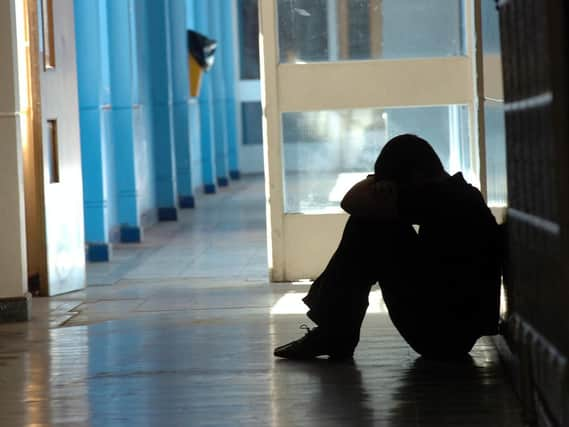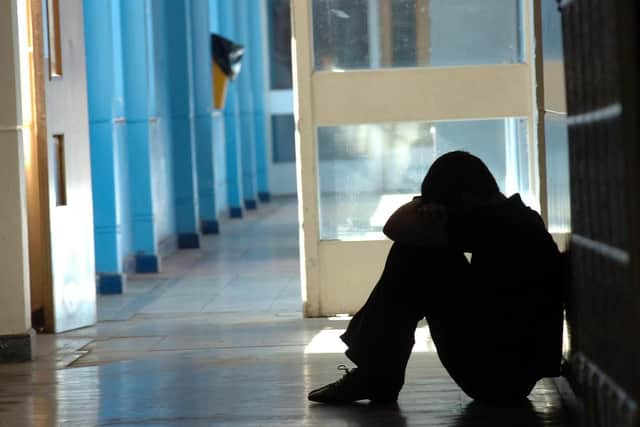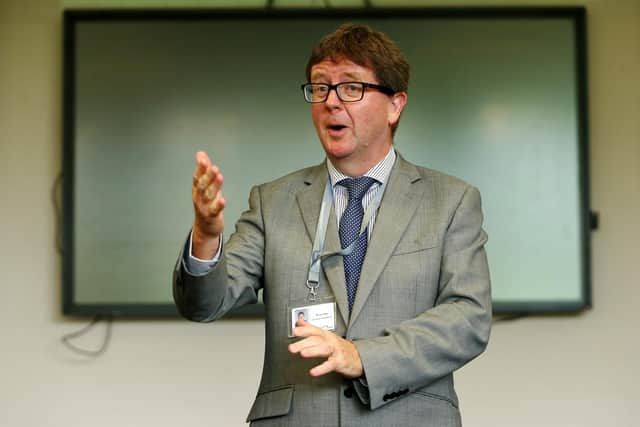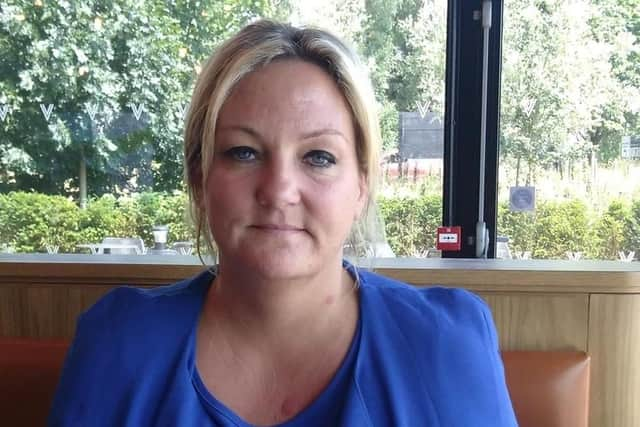Education experts in Portsmouth raise concerns about children's mental health


The report was carried out by YoungMinds, the UK's leading charity in supporting children and young people with mental health problems.
The report highlighted the significant number of students who are suffering from a range of mental health conditions.
Advertisement
Hide AdAdvertisement
Hide AdThe survey of 6,719 teachers across the UK showed 94 per cent had seen a rise in pupils with mental health issues over the last five years and that almost every teacher had come into contact with a child diagnosed with a mental health condition. The report also indicated that teachers are now spending an average of 4.5 hours every week responding to concerns about students' mental health.Â


Ian Potter, executive headteacher of the Gosport and Fareham Multi Academy Trust, believes this national trend is is reflected regionally.
'˜From my experience I would certainly say the situation locally reflects the national data. It is a complex situation which in many ways feels like the perfect storm,' he said.
Portsmouth cabinet member for education, Suzy Horton, added: '˜Teachers are seeing a rise in children's mental health issues across all ages and this is a reflection of reports in society at large with increased levels of anxiety, self harm and depression.'
Advertisement
Hide AdAdvertisement
Hide AdEducationalists believe one of the key contributory factors is the increased pressure being placed on schools


National Education Union vice president and Portsmouth teacher, Amanda Martin, said: '˜We have the most tested children in the western world. Students taking their GCSE's have to sit an average of 27 exams. Then there is the pressure of SATS results and the constant end of unit assessments to judge children's progress. I have seen the pressure SATS can cause in my own school with 10-year-olds being physically sick before exams and reduced to tears during tests,'Â
Soo Barnard, assistant head teacher and designated safeguarding lead at Park Community School, added: '˜Schools are trying so hard to show students'Â progress. We are constantly assessing children at every level to show we are on track.'Â
Mr Potter also feels the problems of some students is a consequence of a narrowing curriculum which is not suitable all children.Â
Advertisement
Hide AdAdvertisement
Hide AdHe said: '˜Within the education sector there is a lack of understanding as to what makes a good education. The current situation is an inevitable consequence of a policy directive that everyone should be taking the same exams. There is a lack of differentiation in curriculum provision and how young people are subsequently assessed.'


In contrast with the rise in the increasingly complex needs of pupils has been the diminishing provision of resources to support them.Â
Ian Gates, headteacher at The Cowplain School, said: 'There is no doubt that austerity has had an impact on the provision of services to support young people experiencing difficulties. With budgetary constraints, when some of the people in school who traditionally supported young people leave, for example school councillors, schools can't afford to replace them. Support services like CAMHS (child and adolescent mental health service) are under huge pressure and waiting lists are very long. Schools are at the sharp end of dealing with this but head teachers have to make difficult decisions and will inevitably have a number of conflicting priorities when working with a diminishing budget.'
For Emma Thomas, chief executive of YoungMinds, these conflicting priorities ultimately result in other issues taking precedence.Â
Advertisement
Hide AdAdvertisement
Hide Ad'˜Many schools and teachers do amazing work in looking after student's mental health, but sadly the current education system doesn't place enough value on this. So when schools have to make difficult decisions about how to spend their limited budgets, it can be hard for them to make wellbeing a priority,' said Mrs Thomas.


The increasing number of children being diagnosed with a mental health condition correlates to an overall upward surge within society at large.Â
'˜People are now more willing to talk openly about mental health than in the past which will now, quite rightly, lead to being labelled with a diagnosis,' said Mr Potter.
Mrs Barnard added: '˜I would say our awareness of children's problems is much greater than it used to be and so we are now able to recognise children's mental concerns more readily.'
Advertisement
Hide AdAdvertisement
Hide AdThe consensus amongst the education professionals in Portsmouth also attribute the changing parameters by which children and adolescents live their lives as a potential underlying cause.
Mr Gates from The Cowplain School said: '˜There is also pressure through the increased use and exposure of social media, which young people are most vulnerable to as it is so important to how they interact and socialise.'
The potential significance of social media is highlighted in the report with 46 per cent of teachers revealing they had taught a child who had experienced cyberbullying. Children will often post comments and information on social media which they wouldn't dream of saying direct to that individual. This increased layer of interaction has brought with it a whole new realm of potentially detrimental influence on children's mental state. Â
'˜Young people are now having to cope with the demands of a technology dominated society. Many children now live their lives through social media in which peoples lives are often portrayed as perfect. Children are exposed to this which creates an added pressure, despite the fact the reality for most people is a life of moderation,' explained Mr Potter.
Advertisement
Hide AdAdvertisement
Hide AdOne of the greatest concerns for educational professionals is the worrying behaviour exhibited by students as a result of issues regarding their mental health.Â
Within the report, 60 per cent of teachers reported they had taught a child who they believed to be self-harming and 44 per cent said they had encountered a child experiencing suicidal thoughts.
'˜From my experience we are certainly dealing with a lot more children who are really struggling and who self harm. We are certainly seeing an increase in referrals to outside agencies to access support for children with complex needs,' explained Mrs Barnard.
Â
COMMENT BY NEIL FATKIN, EDUCATION REPORTER AT THE NEWS
Towards the end of my teaching career I remember talking to a particularly difficult Year 7 student who had recently arrived at the school. When challenged about why he was failing to follow any of my instructions he promptly replied that he '˜couldn't help it' as he had been diagnosed with ODD (oppositional defiant disorder). Whilst not wanting to demean this condition, or any other mental mental diagnosis, the simple fact is that under previous generations the child in question would have been viewed as a '˜naughty boy'.
Advertisement
Hide AdAdvertisement
Hide AdWe now have a far greater understanding of child psychology and have quite rightly identified a vast range of conditions which can cause difficulties for children and adults. Inevitably the greater understanding we have for a broadening range of mental health conditions then the greater a number of children will be diagnosed. As Soo Barnard explained: '˜I believe all of these conditions have always existed but we are now far more aware of what they are.'Â
The situation is undoubtedly being compounded by budget cuts which have reduced the capacity of schools to deal with mental health at a time when the complex needs of children are increasing. Teachers are increasingly being asked to work as makeshift counsellors and child psychologists when they are simply not trained to do so.Â
At a time when more teachers than ever before are leaving the profession, with workload and increased pressure highlighted as the primary cause, it should certainly be no surprise that the children, on whom school results depend, are also being affected.
In my last school, every six weeks students were subjected to a rigorous system in which I would formally assess students and track their progress towards the holy grail of target grades. Students were constantly informed of what their outcomes should be, how they were currently performing and questioned about potential improvement. Whilst this system ticked the ofsted box of accountability, when multiplied across 10 subjects it undoubtedly generated a burden of pressure on students. Inevitably for some young minds it is an expectation too difficult to cope with.
Advertisement
Hide AdAdvertisement
Hide AdThe pressure on schools to reach targets can be overwhelming to the point where it can inevitably narrow perspective on other aspects of school life. However the system should never reach a point in which the desire for results '˜is at all costs'. Whilst schools and teachers are quite rightly accountable if levels become suffocating there will inevitably be a breaking point. If many teachers are reaching that point then it should no surprise many students are too.
Â
Â
Â
Â
Â
Â
Â
Â